DIRECTED BY: Irving Cummings
STARRING: Warner Baxter, Edmund Lowe, Dorothy Burgess
WON: Best Actor (Warner Baxter)
NOMINATED FOR: Best Cinematography (Arthur Edeson)
Best Director (Irving Cummings)
Best Writing, Achievement (Tom Barry)
Best Picture
There was a reason the early sound films were called "talkies." Most shoots were limited to a single microphone, and that was usually reserved for the dialogue. It was hard to pick up sounds that weren't within a few feet of it, so films were enclosed on sets to allow for easier sound pick-up.
This is what gives In Old Arizona it's claim to fame: Along with being the first sound western, it's the first sound film that largely takes place outdoors.
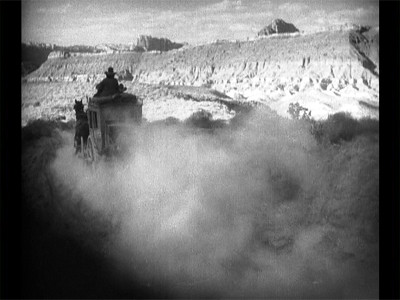
Unfortunately, this isn't as big of a deal as it sounds. The microphones barely picked up anything beyond a few feet, so for a ten second shot of a man riding a horse, you might hear the hoof beats for about two seconds, followed by eight seconds of total silence. More minor sounds that would create atmosphere, like the wind, weren't picked up.
The locations in Arizona were certianly photogenic, but with such weak sound sources, it would have been a lot more satisfying to just give the non-dialogue portions of the film to a foley artist. Not that there's a lot of those. This is a "talkie," and it earns that title. This film will NOT SHUT UP! It's wall-to-wall boring conversations between three bad actors, and it's enough to drive you bonkers.
Let's start with Baxter.
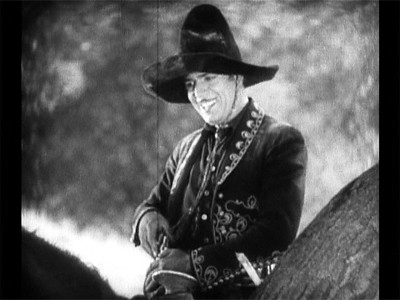
Warner Baxter, who won the Academy Award for acting somehow, plays the Cisco Kid, #1 outlaw of the west, and oversized hat connoisseur! This is my first film with Warner Baxter, and I'm not sure what his acting strengths are (or if he even has any). He's never allowed to physically act throughout the entire film, he just stands there with a smile and reads off his lines.
And he keeps talking, and talking, AND TALKING. He never stops talking. There are a lot of scenes where he's alone, and he just talks to himself. He sees a wanted poster for him, and he laughs and gives a monologue about how awesome he is. He monologues about everything: about how awesome his girl is, about how awesome babies are (seriously), about how awesome his wine is, etc.
And despite all this talking-and-nothing-else, Warner Baxter isn't very good at it. Maybe it's his faux-Mexican accent (even though the character is Portuguese, figure that one out). Maybe Baxter couldn't play young (the character was 25 and Baxter was 39). Maybe he just couldn't get over how goofy and large his hat was.
In any case, Baxter was bad, and the Cisco Kid was uninteresting. The description of the film I read compared the Cisco Kid to a wild west version of Robin Hood, which is nothing but a complete misunderstanding on what Robin Hood was about. Robin Hood didn't just "steal from the rich and gave to the poor," he fought a corrupt government that squeezed money unfairly from it's citizens. The Cisco Kid just stole stuff.

The opening of the film shows the Cisco Kid stealing a box of money from a carriage, and then leaving. The people the Kid steals from aren't rich or corrupt or anything, they were just passing through, and the Kid never has any intention though the film to do anything with the money but buy things for him and his girl. What an asshole.
It should be noted that in this classic western story of law makers and law breakers, there's hardly any action in it. The carriage stickup is just the Cisco Kid pointing a gun at a few people, them giving him the money, and him leaving. No shots fired, no hasty escapes, just routine.

There's only one scene in the movie that would qualify as an action scene. About two-thirds of the way through, three random guys spot the Cisco Kid and try to take him down for the reward on his head, but the Cisco Kid makes quick work of them. It's a quick moment, shot from a distance, and has nothing to do with what little plot there is in the film. So, with those two short moments out of the way, what left for the remaining 60+ minutes of film?
Talking, talking, talking, talking, TALKING.
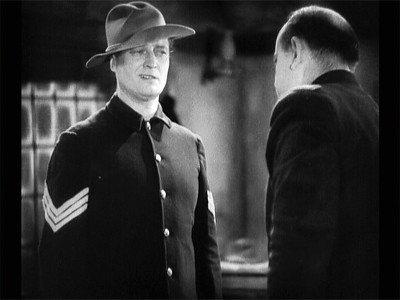
And then we have Edmund Lowe and his character Sgt. Dunn. Despite being the Cisco Kid's main foil, Dunn comes off even worse of a character. He's a gambler and a womanizer who cheats on his wife, and he's only really after the Kid for the money, not because it's the right thing to do. The main problem with this is that Edmund Lowe must not have gotten the memo and thought he was playing the good guy, because despite what this character does, Lowe always plays the character as an aw-shucks-boy scout that ends every sentence with "geez".
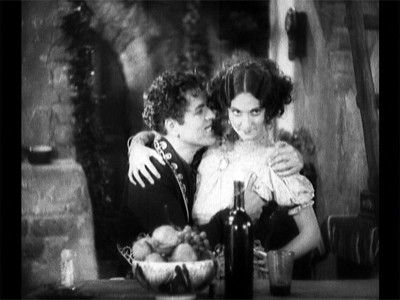
And then we have Dorothy Burgess and her character, the feisty Mexican Tonia Maria. Tonia is a gold digger, and sleeps with other men behind the Kid's back. She's easily the least-likable character in the film, and it doesn't help that Burgess' performance is damn near racist.
Eventually, Tonia gets with Dunn, and we realize that the only reason we're even rooting for the Cisco Kid, a selfish bandit, is because everybody else is WORSE. What we end up with is an hour and a half film where three totally unlikeable characters do nothing but talk to each other about nothing, all while being played by three bad actors. This is what Hollywood wanted to pretend was entertainment back then.
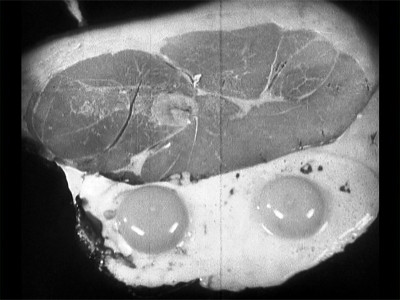
2 comments:
greg.. enjoying your writings.. - when i watch stuff, be it films, wrestling, etc. i'm always studying and simultaneously fascinated by the eyes.. - body language is important, too, but i find that i try to connect everything (inc. art, etc.) to the human experience and the easiest way to do that is to look at the actors' eyes..
is there any particular different ways your going about tackling viewing such older material? - i just watched the original and recent versions of The Day the Earth Stood Still and enjoyed the '51 film much more..
Grege: I have just finished watching In Old Arizona and I agree with you that the Cisco Kid is short of a "Robin Hood" charachter but at the same time, it appears to have some kind of "decency" when he steals: for example, at the stagecoach scene, he does not take any thing from the travelers, from the individuals, but take the money from the bank. Off course, that does not amount to say that he is some kind of a "popular bandit" or some kind of romantic hero but that shows something else than being just a regular thief.
Post a Comment